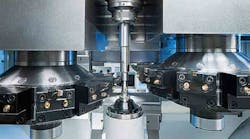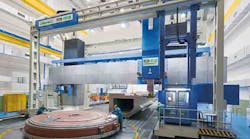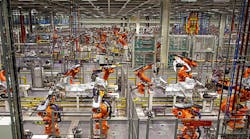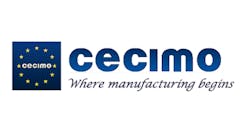European manufacturers are once again drawing attention to the serious consequences they predict will follow from insufficient levels of investment in new production equipment and technology. The problem may become more acute as concern grows that the EU economy may be slipping again into recession.
CECIMO, the European Association of the Machine Tool Industries, followed the European Commission’s release of a new market study, Report on Member States’ Competitiveness (2014), with the news that European machine-tool consumption is still 30% below the pre-crisis (2009) level, confirming reports of less-than-sufficient recovery since that time.
Now, CECIMO urged the EC to implement strategies that will accelerate new capital investments, explaining that a common European policy is needed to offset macroeconomic conditions that obscure individual firms’ performance as well as slow the shift toward new more competitive production technologies.
The message of the report from the European Commission (the EU’s cabinet government) was that capital investment now appears to be unresponsive to financial policies, which is depressing economic growth across the EU. CECIMO added “delayed investments in productive capital assets impede productivity growth and innovation, thus undermining industrial competitiveness in the long term.”
A similar observation was made recently by UCIMU, the Italian machine tool builders’ trade association, which cautioned that recent changes in tax policy had not sufficiently boosted new orders.
CECIMO’s point is one that has been raised frequently in the years since 2009, and underscores long-term concerns across the EU and within individual nations about the region’s global competitiveness in manufacturing industries.
Earlier this year, CECIMO — a consortium of 15 national associations of machine tool builders, representing approximately 1,500 industrial enterprises and more than 97% of total machine tool production in Europe, and more than 33% worldwide — endorsed efforts by the EC to increase manufacturing’s contribution to the EU GDP to 20% of the total, and to establish a “consistent and coordinated” European industrial policy.
“In the face of growing competitive pressures from international competitors and high average manufacturing costs in Europe, manufacturing companies need to shift to automated and high-performance production systems to remain competitive,” stated CECIMO president Jean Camille Uring, addressing European industrial leaders at the 10th European Manufacturing Strategies Summit in Düsseldorf last week. “However, much-needed productive capital investments are hindered by economic uncertainty, low business confidence, and severe access to finance problems affecting especially SMEs in some parts of Europe.”
CECIMO noted that even new capital investments in Europe do not compensate for the depreciation rates. It cited a recent consulting firm’s calculation that new capital investments totaling €30 billion this year will leave Europe’s industrial declining in total value.
Moreover, the average age of machine tools has increased in manufacturing countries like France and Germany over the past five years.
CECIMO urged the EC to implement strategies to accelerate new capital investments, explaining that a common European policy is needed to offset the macroeconomic conditions that obscure individual firms’ performance as well as slow the shift toward new more competitive production technologies.
“The obsolescence of the machinery park risks dragging European industry into a downward spiral of ‘low productivity/low value added/low profitability’,” explained CECIMO general director Filip Geerts, “and all this is happening as global competitors continue to upgrade their technological capabilities and boost productivity rates.”










